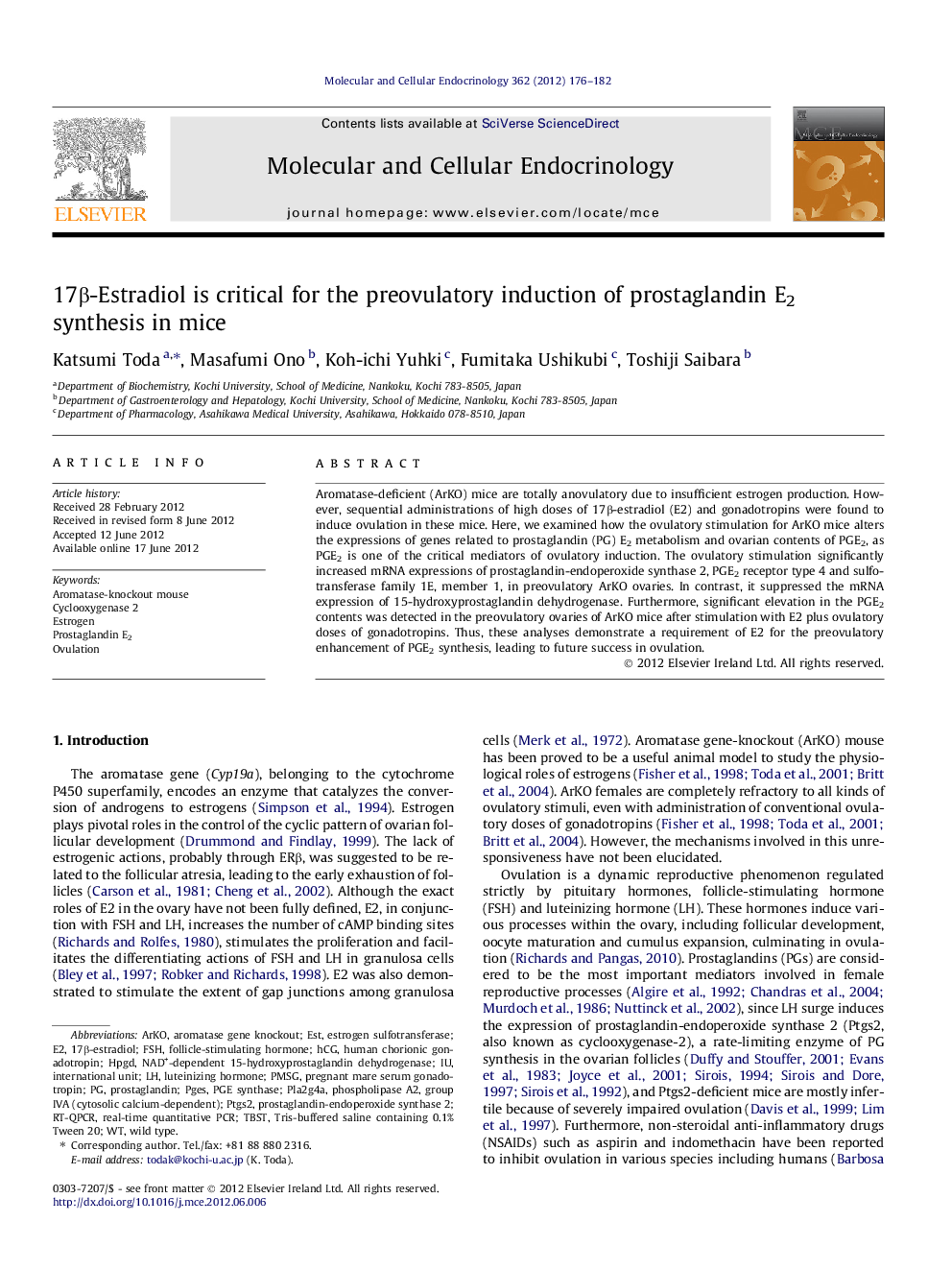| Article ID | Journal | Published Year | Pages | File Type |
|---|---|---|---|---|
| 2196289 | Molecular and Cellular Endocrinology | 2012 | 7 Pages |
Aromatase-deficient (ArKO) mice are totally anovulatory due to insufficient estrogen production. However, sequential administrations of high doses of 17β-estradiol (E2) and gonadotropins were found to induce ovulation in these mice. Here, we examined how the ovulatory stimulation for ArKO mice alters the expressions of genes related to prostaglandin (PG) E2 metabolism and ovarian contents of PGE2, as PGE2 is one of the critical mediators of ovulatory induction. The ovulatory stimulation significantly increased mRNA expressions of prostaglandin-endoperoxide synthase 2, PGE2 receptor type 4 and sulfotransferase family 1E, member 1, in preovulatory ArKO ovaries. In contrast, it suppressed the mRNA expression of 15-hydroxyprostaglandin dehydrogenase. Furthermore, significant elevation in the PGE2 contents was detected in the preovulatory ovaries of ArKO mice after stimulation with E2 plus ovulatory doses of gonadotropins. Thus, these analyses demonstrate a requirement of E2 for the preovulatory enhancement of PGE2 synthesis, leading to future success in ovulation.
► Aromatase-deficient (ArKO) mice are anovulatory due to estrogen insufficiency. ► Preovulatory induction of PGE2 synthesis is obligatory for ovulation. ► Ovulatory induction for ArKO mice is accompanied by induction of PGE2 synthesis. ► Stimulation without estrogen does not induce it in ArKO mice. ► We concluded that estrogen is crucial for preovulatory induction of PGE2 production.
